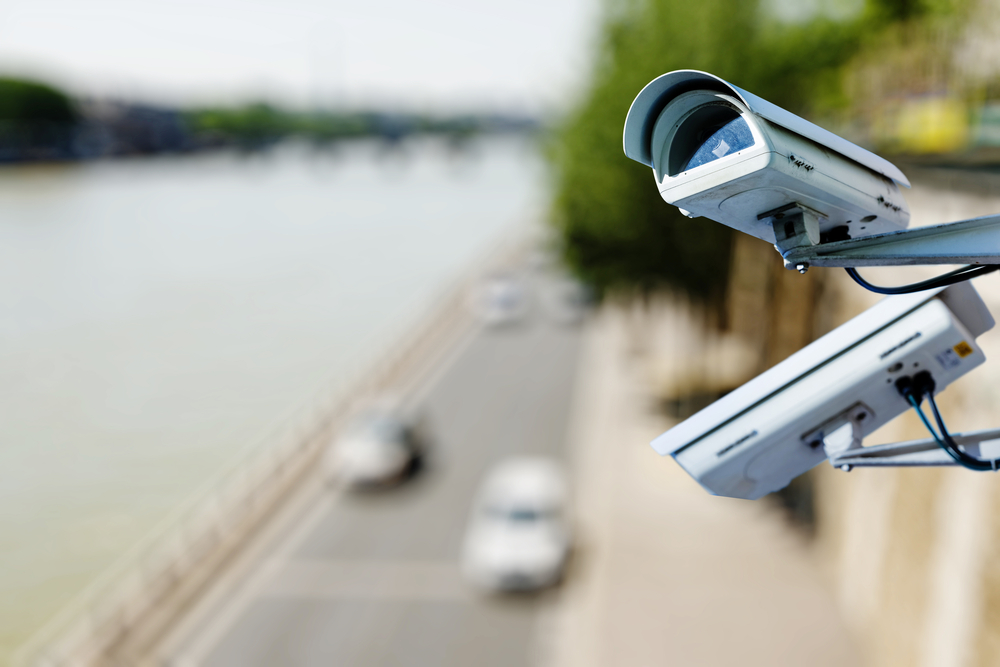I live in a little micro-municipality of 4.2 square-miles wedged between Atlanta, DeKalb County and several other tiny “cities.” The Atlanta metropolitan area is chock-full of these odd little independent municipalities, each with its own public services — schools, fire departments and so on. Just crossing the street you switch police departments. It’s a vestige of the 1960s, when desegregation prompted white Atlantans to separate from the big city.
My town has a decent per-capita income and taxes to match, so our public services are first-rate. But, even in the lesser towns around us, money never seems to come between the police department and the latest surveillance toys.
So I wasn’t surprised about 18 months ago when I noticed that our police cars now sported license-plate cameras — front and back. Wherever the cops go, they’re taking pictures of cars and running their plates automatically.
Automated License Plate Readers
Our police department bought automated license plate reader (ALPR) equipment. But, all across the U.S., police departments are obtaining ALPR technology for free.
It works like this. Companies like Vigilant Solutions give local police departments no-cost license plate readers and free access to LEARN-NVLS, a national data system for automated license plate readers. In turn, the police give Vigilant access to information about all outstanding tickets and court fees. The company then turns this data into a hot-list, which it feeds into LEARN-NVLS, making it accessible to police departments across the country. As police cars patrol, they search for license plates associated with outstanding fines and fees. Vigilant gets a 25% “processing fee,” paid by the driver, for every fine recovered in this way. To facilitate the cash flow, Vigilant has even provided cops in Texas with credit card readers so they can recover fines on the spot.
But that’s not the only way Vigilant and similar companies profit by burrowing into government. License plate information collected by APLR systems is fed into LEARN-NVLS, which now contains more than 2.8 billion plate scans — and it’s growing by more than 70 million scans a month. This massive database is hugely valuable to Vigilant, which can use the data as it sees fit, unconstrained by any law.
To preserve the value of this unique database, Vigilant’s contracts with police departments stipulate that the data collected by automated license plate readers belong to the company, not the government. Local governments are forbidden from sharing the data — or even from talking about ALPR and Vigilant in public.
Logical Consequences
The results of this cozy arrangement are predictable. Police no longer focus on responding to calls and traffic violations. They focus on what their computer tells them about the status of drivers around them. They have to do this, because if they don’t generate revenue, they stand to lose the free APLR system. Besides ignoring current traffic violations in favor of collecting on old ones, the system encourages police and local courts to maximize the number of warrants that could trigger an APLR alert, and thus maximize cash flow for themselves and for Vigilant.
There’s more. When the police want to track a vehicle with a GPS device, they have to get a warrant from a judge under the Fourth Amendment, which protects against unlawful searches. But, there’s nothing to stop police from mining LEARN-NVLS to find out everywhere a particular license plate has been photographed. They just have to pay Vigilant Solutions for access to the data. This comes in handy when police track a specific vehicle’s attendance at locations or events, such as political protests.
Of course, Vigilant has other ways of making money from our license plate information. They sell LEARN-NVLS data to financial institutions who use it to make decisions about loan origination, servicing and collections. Insurance providers use the data to mitigate risk and investigate insurance fraud.
One California state senator pointed out just one unintended consequence of the rapid, unsupervised spread of automated license plate readers: “Should a cop who thinks you’re cute have access to your daily movements for the past 10 years without your knowledge or consent?”.
Profit and Policing: An Unholy Alliance
Understandably, the federal government just loves this system. During the past five years, the Department of Homeland Security has distributed more than $50 million in federal grants to law-enforcement agencies for ALPR systems. Consequently, with Uncle Sam and the private sector both keen to spread automated license plate readers, the unregulated database of license plate information is growing rapidly.
Vigilant Solutions is a clever outfit … very entrepreneurial. But like private for-profit prisons, who lobby lawmakers for more crimes and thus more prisoners, its business model is designed to address a “market” that only exists because of government. And just like private prisons, private-sector surveillance technology has the potential to shape how government decisions are made. If there’s money to be made, our freedoms go out the window.
But the free market may have the last laugh. In researching this article, I discovered several outfits that are working on technologies that would render license plates impervious to remote scanning.
Time will tell whether our government will intervene to stop that particular bit of innovation. After all, there’s no money in it for them…
Kind regards,
Ted Bauman
Offshore and Asset Protection Editor
